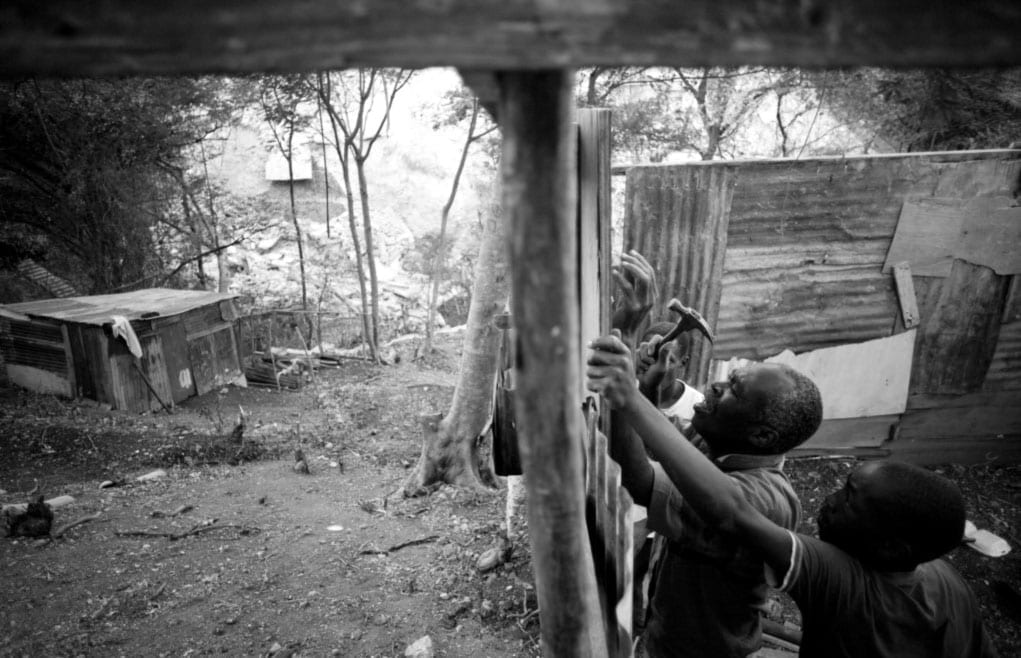
Haitian Workers Not Sharing in Nation’s Economic Growth
Up to 70 percent of the Haitian workforce lacks formal jobs—but the notion that “any job is better than no job” is not a goal that should be embraced, says Lauren Stewart, Solidarity Center program officer for Haiti and the Dominican Republic.
“I visited a factory park in Port-au-Prince, and one of the workers showed me his pay stub, which had deductions for lunch that he had to buy on credit from his employer since he couldn’t afford to eat,” Stewart says. “By the time he received his paycheck, almost half of it went toward paying back lunch.
“This is the current state of garment workers, who some consider to be the lucky few because they have formal jobs. But in reality, these workers are only earning enough to fend off starvation by the day,” she added.
Stewart spoke Friday at the panel discussion, “Economic Growth: Jobs or Sustainable Livelihoods?” part of a two-day event on Capitol Hill in Washington, D.C. Sponsored by the Haiti Advocacy Working Group (HAWG), the discussions highlighted the ongoing need for aid accountability and equitable development in post-earthquake Haiti.
The panel also included Nixon Boumba, the in-country consultant to American Jewish World Service, and Kysseline Chérestal, a senior policy analyst at ActionAid USA.
All three co-panelists pointed out how despite investment in the country’s garment sector, working Haitians are not sharing in the economic prosperity.
Chérestal highlighted a January ActionAid report that found more than $170 million of U.S. emergency aid money to Haiti went to finance the Caracol Industrial Park, which was built on prime agricultural land in northern Haiti, far outside the disaster zone. More than 366 families and 720 agricultural workers lost their land to Caracol. Of the 65,000 jobs promised, only 5,000 have been created.
The garment industry, Haiti’s largest source of formal jobs, employs some 35,000 workers who are paid a minimum wage of between $5 and $7 per day. A Solidarity Center report last year found that the cost of living is three to four times higher than the minimum wage, and workers spend more than a third of their wages on transportation and lunch to sustain their labor throughout the day. The remaining wages are not sufficient to adequately feed their families, let alone cover basic costs like housing, healthcare, education for their children and clothing.
In addition to low wages, the garment industry is rife with labor rights abuses, including forced overtime work, health and safety abuses, sexual harassment, and retaliation from employers for union organizing.
For workers to benefit, “they must have safe and dignified jobs, in which they can freely exercise their rights and earn enough to support themselves and their families,” says Stewart.
The Solidarity Center is a member of HAWG, a working group of international development, faith-based, human rights and social justice organizations advocating on issues related to U.S.-Haiti policy.
